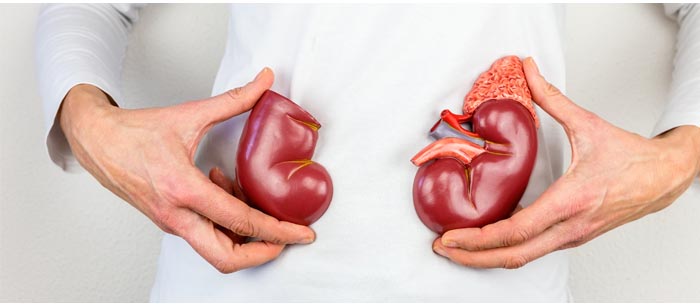



Kidney stones are hard deposits of minerals and acid salts that stick together in concentrated urine. They can be painful when passing through the urinary tract, but usually don't cause permanent damage.
The most common symptom is severe pain, usually in the side of the abdomen, that's often associated with nausea. Treatment includes pain relievers and drinking lots of water to help pass the stone. Medical procedures may be required to remove or break up larger stones.
A procedure called percutaneous nephrolithotomy involves surgically removing a kidney stone using small telescopes and instruments inserted through a small incision in your back. You will receive general anesthesia during the surgery and be in the hospital for one to two days while you recover.